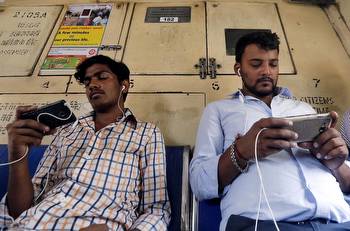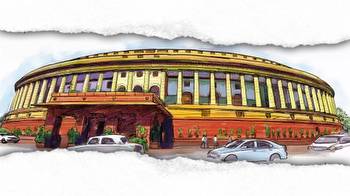From Smartphones to Slot Machines: The Rise and Risks of Mobile Gambling in India

Mobile gambling, or the use of mobile devices such as smartphones and tablets to play games of chance or skill for money or prizes, is a rapidly growing industry in India. According to a report by KPMG and Google, the online gaming market in India has reached $2.8 billion by 2022, with mobile gaming accounting for 85% of the total revenue.
But what if we told you that there’s a dark side to mobile gaming? A side that could ruin your life, your health, and your wallet. A side that could expose you to fraud, cybercrime, and legal troubles. A side that could turn you into an addict, a gambler, and a reckless driver.
That’s the reality of mobile gambling in India. A booming industry that’s taking over the country, but also posing serious risks and challenges for Indian society. Mobile gambling is not just a game, it’s a gamble. And you need to know the facts before you play.
In this article, we’ll show you how mobile gambling is taking over India, and why you should be careful. We’ll reveal the factors that make mobile gambling so popular, but also so dangerous.
We’ll also give you some tips and advice on how to enjoy mobile gambling responsibly, safely, and legally. And we’ll show you how mobile gambling can be a positive force for India if done right.
So, are you ready to learn the truth about mobile gambling in India? Then read on, and discover the opportunities and challenges of this exciting industry.
The factors driving the popularity of mobile gambling in India
India is witnessing a surge in mobile gambling, as more and more people are using their smartphones and tablets to play games of chance or skill for money or prizes. This trend is driven by several factors that make mobile gambling appealing and convenient for Indian consumers. Some of these factors are:
- The increasing affordability of smartphones: Smartphones are becoming cheaper and more powerful, making them more affordable and accessible for the masses. According to a , the average selling price of smartphones in India was $159 in 2019 and is expected to drop to $145 by 2022. The same report also estimates that the number of smartphone users in India will reach 442 million by 2022, up from 345 million in 2019. This means that more and more Indians will have access to mobile devices that can support online gaming and gambling applications.
- The availability of high-speed internet: Internet connectivity is also improving in India, especially with the advent of 4G and 5G networks. According to a report by Ookla, the average mobile download speed in India was 12.41 Mbps in March 2021, up from 9.81 Mbps in March 2020. The same report also ranks India as the 122nd country in the world in terms of mobile internet speed, up from 132nd in March 2020.
- The convenience and privacy of mobile gambling: Mobile gambling offers many advantages over traditional forms of gambling, such as land-based casinos, lottery tickets, or sports betting shops. One of the main benefits is the convenience and privacy of mobile gambling. Users can play anytime and anywhere, without having to travel, queue, or interact with other people. They can also enjoy more privacy and anonymity, as they can play without revealing their identity, location, or financial information.
- The cultural affinity for gambling among Indians: Gambling has a long and rich history in India, as it is deeply rooted in the culture and society of the country. The ancient scriptures of India, such as the Vedas, the Mahabharata, and the Ramayana, contain references to gambling as a part of the life and stories of the people. Gambling is also associated with many Indian festivals, such as Diwali, Holi, and Janmashtami, where people celebrate by playing games of chance and skill with their friends and family. For many Indians, gambling is a form of entertainment and recreation, as they enjoy the thrill and excitement of winning and losing money.
The potential risks of mobile gambling in India
Mobile gambling, while offering many benefits, also comes with many risks and challenges for Indian society. Some of the main risks are:
- The risk of impulse betting: Mobile gambling can encourage impulse betting, or the tendency to place bets without much thought or planning. Impulse betting can lead to excessive and irresponsible gambling, as users may lose track of their time, money, and limits. Impulse betting can also be influenced by external factors, such as peer pressure, social media, advertising, and emotional states.
- The risk of gambling while driving: Mobile gambling can also pose a serious threat to road safety, as users may be tempted to gamble while driving. Gambling while driving can distract the driver from the road, impair their judgment and reaction time, and increase the likelihood of accidents and injuries. Gambling while driving can also violate traffic laws and regulations, and expose the driver to legal consequences and penalties.
- The risk of addiction and problem gambling: Mobile gambling can also lead to addiction and problem gambling, or the inability to control or stop gambling despite the negative consequences. This can affect the physical, mental, and social well-being of the users and their families. Addiction and problem gambling can cause health issues, such as insomnia, anxiety, depression, and suicidal thoughts. It can also cause relationship issues, such as conflicts, isolation, and divorce.
- The risk of fraud and cybercrime: Mobile gambling can also expose users to fraud and cybercrime, or illegal and unethical activities that involve the use of technology and the internet. Fraud and cybercrime can include hacking, phishing, identity theft, data breach, malware, ransomware, and money laundering. Fraud and cybercrime can compromise the security and privacy of the users and their personal and financial information.
- The legal and regulatory uncertainties: Mobile gambling can also face legal and regulatory uncertainties or the lack of clear and consistent laws and regulations that govern the industry. Some states, such as Goa, Sikkim, and Daman, allow some forms of gambling, while others, such as Maharashtra, Telangana, and Tamil Nadu, ban all forms of gambling. The central government also has some laws and regulations that affect mobile gambling, such as the Information Technology Act, the Foreign Exchange Management Act, and the Prevention of Money Laundering Act.
Solutions and Recommendations for Mobile Gambling Risks in India
One of the key steps to address the risks of mobile gambling is to raise more awareness and education among the users and the public. Awareness and education can help users understand the nature and consequences of mobile gambling, and the ways to prevent and treat addiction and problem gambling.
Another important step to address the risks of mobile gambling is to encourage and facilitate more responsible gambling practices and tools among the users and the platforms. Responsible gambling practices and tools can help users set and stick to their time, money, and limits, and monitor and control their gambling behaviour.
A further important step to address the risks of mobile gambling is to provide and enforce more consumer protection and security measures for the users and the platforms. Consumer protection and security measures can include encryption, authentication, verification, certification, auditing, and dispute-resolution mechanisms.
A final important step to address the risks of mobile gambling is to create and enforce a clear and consistent legal and regulatory framework for the industry. This can help users and platforms comply with the legal and ethical standards and obligations of mobile gambling, and avoid legal and regulatory uncertainties and conflicts.
This can also help the government and society to regulate and monitor the mobile gambling industry, and to collect and allocate the revenues and taxes generated by the industry.
Disclaimer : The above is a sponsored article supplied by a third-party source and the views expressed are exclusively those of the sponsor/author and do not represent the stand and views of The Tribune editorial in any manner. User discretion with regard to understanding of and interaction with this article’s content is advised. The Tribune shall not be responsible for any issue whatsoever arising out of this article.






































